Hwang Dong-hyuk is Known for Helming "Squid Game"
But have you seen his films "The Crucible" and "Miss Granny" yet?
South Korean film director Hwang Dong-hyuk is famous for being the mastermind of the Emmy Award-winning “Squid Game” series, which returns for its highly-awaited second season in just three days: Thursday, Dec. 26. Voted by TIME magazine as one of the 100 most influential people in the world in 2022, Hwang is a master of getting to the heart of a story.
A graduate of South Korea’s most prestigious school (Seoul National University), Hwang earned a Master of Fine Arts from the University of Southern California, where his graduation thesis was a beautifully-executed short film called “Miracle Mile.” It dealt with a young Korean woman’s search for her biological brother, who had been adopted by a couple in the United States. The film earned him a student Emmy Award, as well as the Directors Guild of America student film award. As a young filmmaker, he again explored transracial adoption with 2007’s “My Father,” which starred Daniel Henney (“My Lovely Sam-soon”).
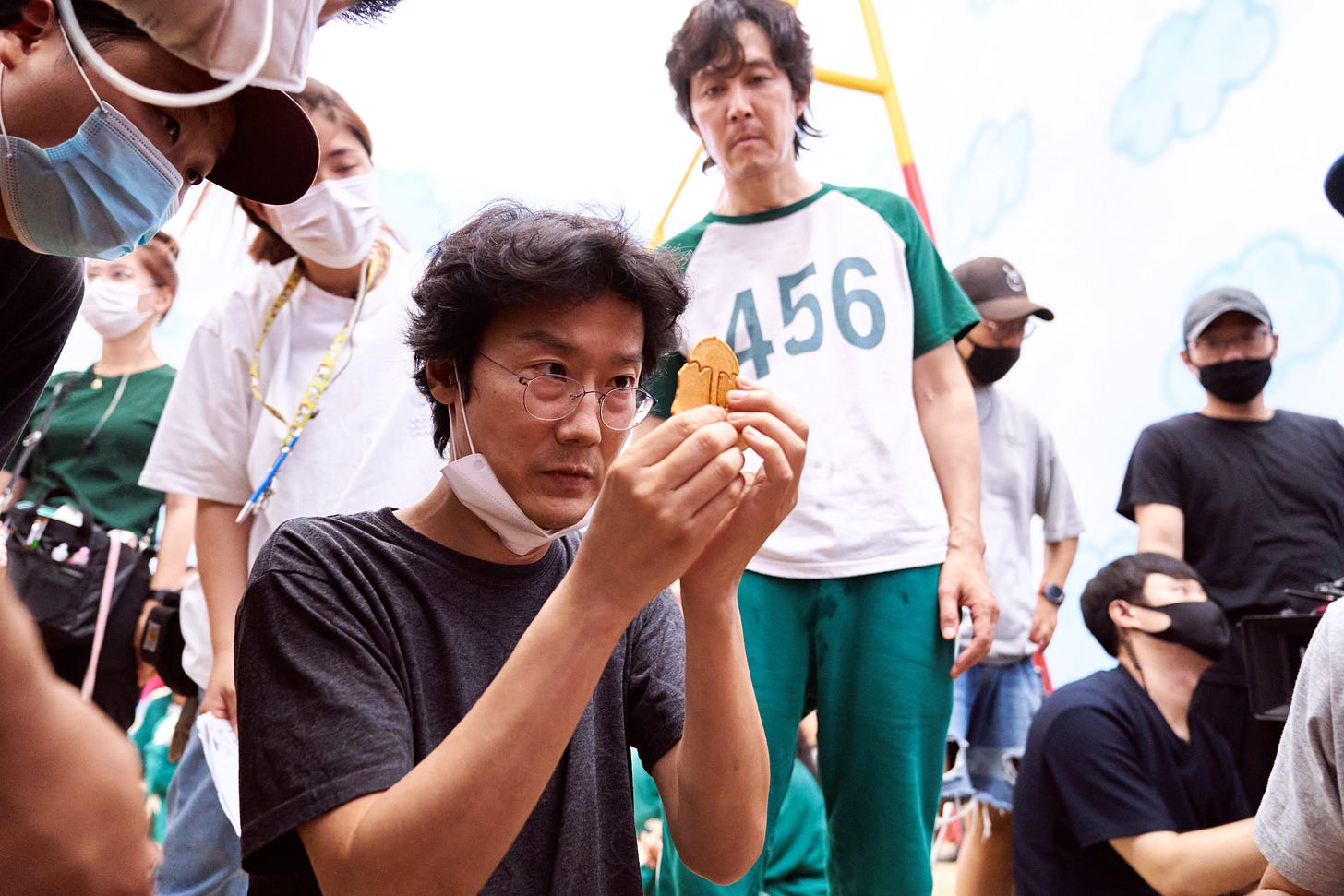
But prior to the success of “Squid Game” in 2021, Hwang was best known for the films “The Crucible” and “Miss Granny.” The former stars Gong Yoo (who portrays the sadistic Salesman in both seasons of “Squid Game”). And Lee Jin-wook, who had a co-starring role in “Miss Granny,” plays one of the new characters in the second season of Hwang’s hit series.
My analysis of “Squid Game” season 2 will release on Friday, after the review embargo has been lifted. I’ll also be chatting with some radio folks about the K-drama. But for now, let’s take a look at two of Hwang’s films that accentuate his ability to tell a compelling story. Warning: “The Crucible” is not for the faint of heart.
THE CRUCIBLE
도가니 | ☆☆☆☆
Kang In-ho (played by Gong Yoo)
Seo Yoo-jin (played by Jung Yu-mi)
↑Note: Korean names denote the surname followed by the given name.
Based on Gong Ji-young's 2009 novel, "도가니, " “The Crucible” is a brutal look at the systematic torture of deaf children at a facility for the disabled. Though Gong's book is fictional, the stories she tells are based on the decades of real-life abuse that students endured at the Gwangju Inhwa School for the Deaf.
In this film adaptation, the widowed In-ho (Gong Yoo) leaves Seoul for a job teaching art to deaf students in Mujin. A failed artist whose family suffered due to his inability to financially provide for them, In-ho optimistically views his new job as an opportunity to finally earn enough money to properly raise his asthmatic daughter and repay his elderly mother (who is caring for the child while he works). The only way he even got this position was because his former college professor recommended him.
The filmmakers and actors went on record saying that proper care was taken to protect the children working on set. But "The Crucible" is harrowing not only for what we don't see depicted, but also what we do.
But on his first day of school, he senses that things aren't normal. He tries to overlook the fact that children are reticent to meet his eyes. When he sees a teacher brutally beating a boy, he doesn't interfere when his new colleague laughs off the corporal punishment as justified. And later, when a school administrator tells him he must donate ₩50,000,000 — about $45,000 [at the time “The Crucible” was released] — to the school's foundation if he wants to work there, he is so desperate for the job that he convinces himself that this abnormal request is acceptable. His mother ends up selling her house to pay this bribe.
What?! That donation request should've been In-ho's first clue that he should rush back to Seoul. The average Korean in 2020 made approximately ₩38,000,000 annually. How would any of this balance out financially? It's not like the school would return any of that money if he was fired or quit. And why make that kind of career investment on a school? The reason he accepted this job was to secure his family's future — not displace them.
For the first half of the film, In-ho knows he should listen to his gut instinct, which is telling him that things are off in this dodgy school. The children don't convey the type of boredom common to students who don't want to be in a classroom. They are frightened of being there.
The entire school has failed the children. The teachers who aren't physically abusing the students are almost as bad. They pretend nothing illegal is going on. They remain quiet in order to keep their jobs. And when In-ho tells his mother about the abuse, she tells him to do the same. Stay quiet and protect his career and his own family.
His only ally is Yoo-jin (Jung Yu-mi), a take-charge human rights activist who contacts the authorities, none of whom want to deal with the issues. The school's principal is a beloved church leader with no criminal history, they claim. After Yoo-jin alerts the media, it appears that the children will finally get justice. But the powerful school administers are aligned with every element of bureaucracy that is supposed to help victims.
After “The Crucible” was released in September 2011, public outrage was so strong that investigations were reopened. Gwangju Inhwa School closed permanently just two months after the film's premiere. And some of the worst perpetrators were sent to prison, giving the victims some closure. But it's disgusting that it took a film to do what the police and politicians repeatedly failed to do.
The filmmakers and actors went on record saying that proper care was taken to protect the children working on set. But “The Crucible” is harrowing not only for what we don't see depicted, but also what we do. The child molestation scenes are overly graphic. And while it does exactly what it's supposed to do — make viewers enraged — there is no justification for this overt depiction of youngsters (one of whom is completely naked and being touched by an adult) being sexually assaulted by adults.
Original release date: The 125-minute film opened theatrically in South Korea on September 22, 2011.
Note: There is a Spoiler Alert below the film trailer.
SOME FINAL THOUGHTS:
Gong Yoo's crucial role: Gong Yoo is the star of this gripping film. But from the beginning, he was integral to getting this movie made. He had assumed that the novel, which he read while serving his mandatory military enlistment, was a work of fiction. When he learned the truth, he met with the book's author and, later, renowned director Hwang Dong-hyuk (who ended up writing the script for this film).
I had saved this 2011 Hollywood Reporter review, which overall captured the spirit of the film. But 13 years year, I'm still struck by the oddness of this one line:
Although his acting is not exceptional, Gong’s slight physique and wimpy image makes his character much easier to identify with than that of a heroic crusader.
I had never previously (or since) read a description of Gong Yoo's physique as slight and I found this to be an odd description. I also disagree that his character is wimpy. In-ho is stunned and shocked, but ultimately does what needs to be done.
The Dogani Law: A month and a half after the film's release, the South Korean government passed the Dogani Law, which got rid of the statute of limitations for disabled sexual assault victims, as well as rape victims under the age of 13.
Trivia: Many people were curious as to how "Squid Game" managed to snare Gong Yoo to make a cameo in the series. The answer? He did the part as a favor to Hwang Dong-hyuk, who directed and wrote the screenplays for both "The Crucible" and "Squid Game."
Cast members: Kim Joo-ryoung (who portrayed Han Mi-Nyeo, aka Player 212, in "Squid Game") plays an abusive and powerful school administrator. Kim Hyun-soo ("The Penthouse" trilogy) was only 11 when she tackled the role of Yeon-doo, who bravely testifies against her abusers. And Jung Yu-mi would later act with Gong Yoo again in "Train to Busan" and "Kim Ji-young: Born 1982."
SPOILER ALERT:
After his elderly grandmother agrees to a monetary settlement, Min-su (the boy who was beaten at the start of the film) is no longer allowed to take the stand in court. Knowing that he won't get justice, he stabs his rapist, Park Bo-hyun (Kim Min-sang) on the same train tracks where his younger brother had died by suicide. Min-su refuses to let go of Park. He can see the oncoming train and most likely knows he will die. But so, too, will Park, who had also raped his younger brother.
While some viewers will vilify the grandmother — and some of the other parents who took the settlements — the fact is that many of the family members were mentally disabled and living in poverty. The abusers took advantage of their desperation. When you're poor and have nothing — and there's nothing you can do about the abuse that has already occurred — there is no win-win situation. So sometimes, people grab at something concrete that can help their families now, rather than a future they may never have.
MISS GRANNY
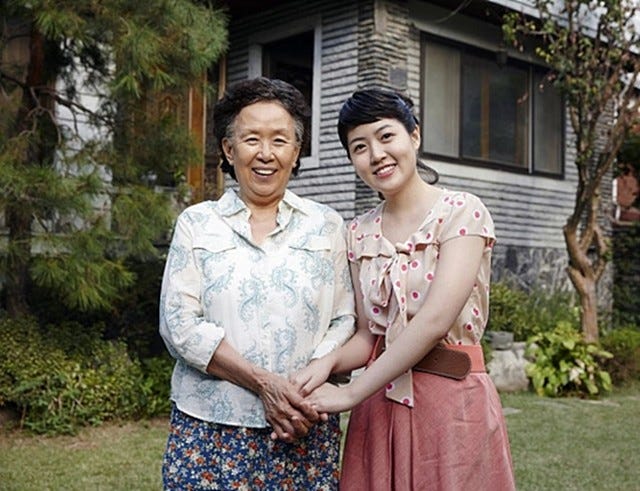
수상한 그녀 | ☆☆☆☆
Oh Mal-soon (played by Na Moon-hee)
Oh Do-ri (played by Shim Eun-kyung)
Mr. Park (played by Park In-hwan)
Ban Hyun-chul (played by Sung Dong-il)
Ban Ji-ha (played by Jinyoung)
Han Seung-woo (played by Lee Jin-wook)
↑Note: Korean names denote the surname followed by the given name.
When we first meet Oh Mal-soon (Na Moon-hee), we see a cantankerous 70something who isn't pleasant to be around. She's horribly dismissive of her daughter-in-law and makes fun of her friends — including her long-suffering former servant, Mr. Park (Park In-hwan).
She saves her smiles and kindest words for her only child Hyun-chul (Sung Dong-il) — a well-respected professor at a top university — and she dotes on her grandson, Ji-ha (former B1A4 K-pop star Jinyoung), who is intent on becoming a musician, despite his parents' protests.
Mal-soon has a frenemy — a slightly younger woman at the senior center who flirts with Mr. Park and brags about her well-off son in America (a doctor) who has sent her a plane ticket to come visit him. When this kinda-sorta friend mistakenly orders a "United States coffee" instead of an Americano, Mal-soon takes great joy in pointing out the embarrassed woman's error.
The two verbally duke it out, with the younger woman scoring the equivalent of a KO when she points out that if Mal-soon's son is so wonderful, then why does he allow her to wear torn, worn-out shoes?
Meanwhile, Hyun-chul's wife, Ae-ja, develops a heart condition that's exasperated by her mother-in-law's nonstop nitpicking. When she ends up hospitalized, Ae-ja's doctor says that if she doesn't live a life filled with less stress, Hyun-chul will end up a widower.
Hyun-chul makes the difficult decision to send his mother to an assisted living facility, promising her that when Ae-ja's health recovers, they will bring her back home. (Sung Dong-il does a wonderful job playing Hyun-chul. It's hard to believe he's the same man in the "Answer Me" trilogy, where he is almost always screaming and/or joking around.)
But Mal-soon suspects that won't happen.
And when she has a run-in with the daughter of a restaurant owner whose business was ruined when Mal-soon stole their best recipe, she loses all hope. As the younger woman berates and beats her, Mal-soon says, "Yes, I did that, but I did what I had to. I raised a good son who will always take care of me."
She's too proud to admit that he is sending her away. (ETA: This sentiment is also explored in the second season of “Squid Game,” when Geum-ja refuses to allow other competitors to badmouth her son, Yong-sik, for betraying her during a game.)
Depressed and feeling that she has been abandoned, she goes to a photographer's studio to get her funeral portrait taken. The kindly photographer promises to make her as beautiful as her idol, Audrey Hepburn. And sure enough, when she leaves the studio, Mal-soon has been transformed into a 20-year-old beauty (now played by Shim Eun-kyung).
She reinvents herself as Oh Doo-ri (Audrey. Get it?) and rents a room at the house where Mr. Park and his daughter live. This way, she can be close enough to the home where her family resides to keep tabs on them.
Just 19 years old when the film was made, Shim Eun-kyung does a wonderful job playing Doo-ri. Feisty and adorable, she has the mannerisms of a septuagenarian down pat.
The combination of Doo-ri's beauty and frank manner of speaking makes her irresistible to a slew of men, including Mr. Park, her own grandson and a handsome TV show producer, Seung-woo, who hears her singing at the senior center.
There is a slight ick factor when Ji-ha initially flirts with her. But the way Doo-ri deals with it is hilarious, recalling to herself that his game is as clumsy as that of his grandfather — her deceased husband. Soon, the two take on a more sibling-like relationship, with Doo-ri joining Ji-ha's band and transforming it into an (almost) overnight sensation.
One of the film's cutest scenes occurs when Ji-ha writes a well-received song. Doo-ri pats him on the butt, just as a grandma would to her young grandchild. To cover up her faux pas, she then pats all the band members' rears and says it's how she celebrates. From then on, that becomes their thing. They celebrate each milestone by slapping each other's butts.
As for Seung-woo (Lee Jin-wook), Doo-ri develops feelings for him. But when he says he has never met anyone like her before and is falling for her, I sense that he finds comfort in her old soul more than anything else.
"You smell like my mother, who I can't remember," he says, after telling her that his mother died when he was a baby.
Some of the film's best moments are the musical numbers. Shim sings all her own songs and she displays a pure, lovely voice that harkens back to a time when vocalists could sing beautifully without any, erm, assistance.
In "White Butterfly," the song in the music video below, Doo-ri relives her difficult past — marrying a man who would die a year later, leaving her a widow when she was barely a bride. She would raise their infant alone, washing dishes at a restaurant outside while her baby son was tethered to a rope, so that he couldn't wander off.
She sheds a tear at the end of the song. I will admit that when I watched this for the first time on Korean Air, I sobbed so much that other passengers looked worried for me. It wasn't just that the song told a full story, but that it's a story of unending hardship that many Koreans (and Korean diaspora) will recognize. (For more about this same era, you may check out my review of "Ode to My Father.")
I'll discuss the ending in the Spoilers below...
Original release date: January 22, 2014. Film stills courtesy of CJ Entertainment. I rewatched this recently on Netflix in the U.S.
Running time: 124 minutes.
SPOILER ALERT: When Ji-ha is in a serious automobile accident, Oh Doo-ri does what most parents/grandparents would do: she gives up her life so that he will survive. In this case, she doesn't die, but she willingly gives up her youth to save his.
When her son realizes that Oh Mal-soon and Oh Doo-ri are the same person, Hyun-chul says he will make sure his son survives, but that now it's her time to live a happy life. He begs her to marry a man who won't die young and to have a grateful child who will treat her better than he has.
She tells him that given the chance to do it all over again, she would do it exactly the same. She is his mother and he is her family. That's basically what is being said in the scene below.
And it's a scene that never fails to make me cry.
Some might call it melodramatic, but my father said the same thing before he died — that he wouldn't have changed any of his hardships, because without them his life wouldn't have included the web of events that led to his meeting my mother and them having us.
And my mother, who led a very difficult life as the wife of the oldest son — which basically meant she became a servant to her in-laws — said the same thing: that she wouldn't have traded her life for an easier one, because then she wouldn't have had us.
There's also a flashback showing that while Mal-soon was overly critical of Ae-ja (played by actress Hwang Jung-min — not to be confused with the “Ode to My Father” male actor of the same name), she quietly showed her love and concern for her daughter-in-law in ways that were easily forgotten because of her ill temper.
The film ends with a nice surprise for K-drama fans. Kim Soo-hyun — the star of the popular K-dramas "My Love from Another Star" and “Queen of Tears” — makes a fun cameo appearance, ensuring that Mal-soon is indeed on her way to leading a happily-ever-after life.
ICYMI:
° “Squid Game: Season 2 Ending Explained: Major Character Deaths, Plot Twists, and More (Teen Vogue)
° Big Ocean: Meet the Deaf K-pop Group That’s Breaking Barriors (Rolling Stone)
° “Squid Game” Is a Social Allegory Informed by Korean History (Teen Vogue)
° Go Away With … Wonho (Chicago Tribune)
° What to Know About the Martial Law Chaos in South Korea (Teen Vogue)
° What We Can Learn About Ourselves from ‘Worldwide Handsome’ (Substack)
° The Best K-dramas of 2024 (Teen Vogue)




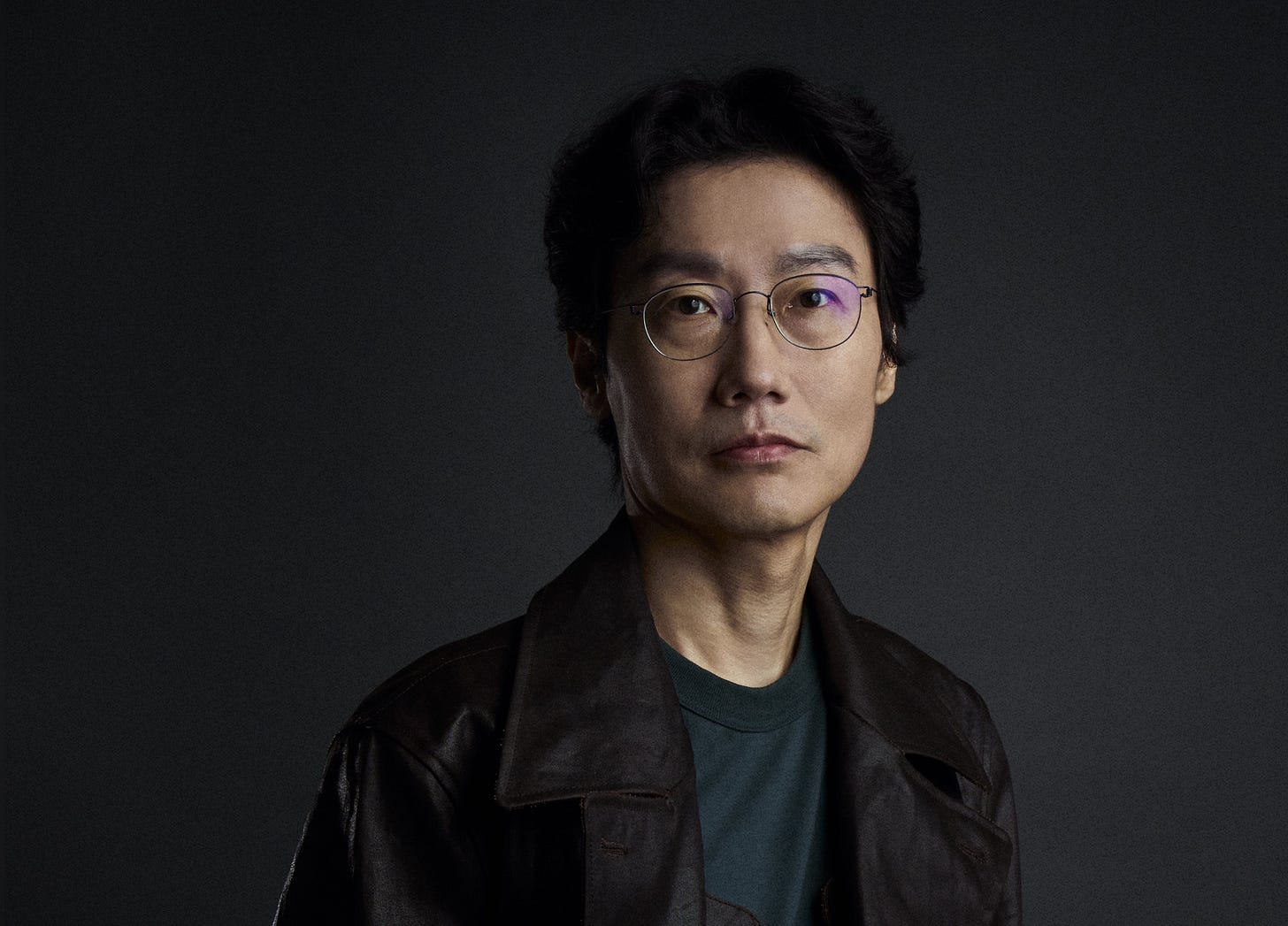
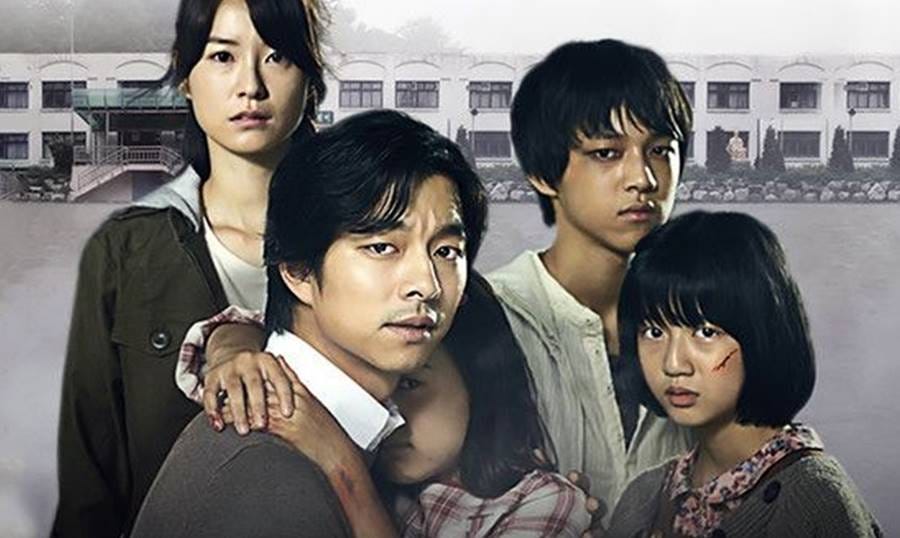
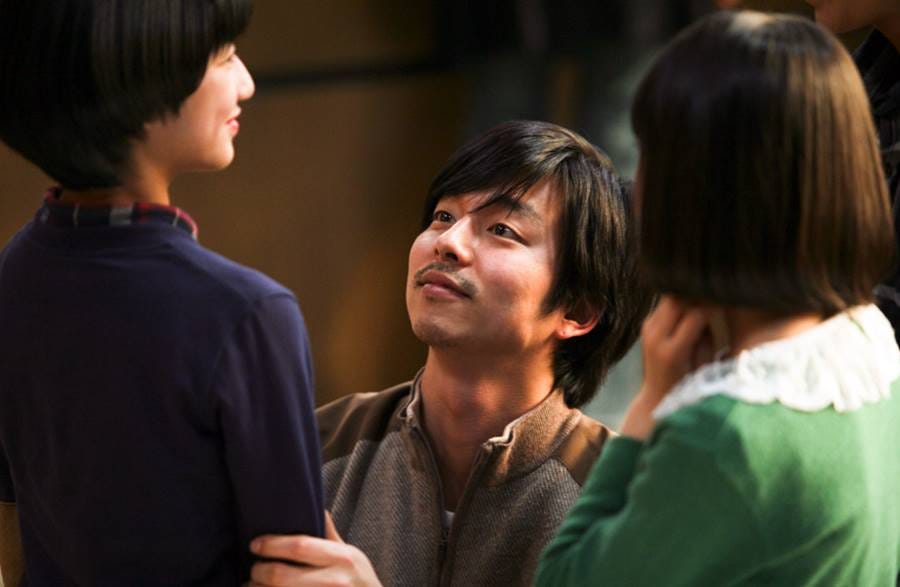
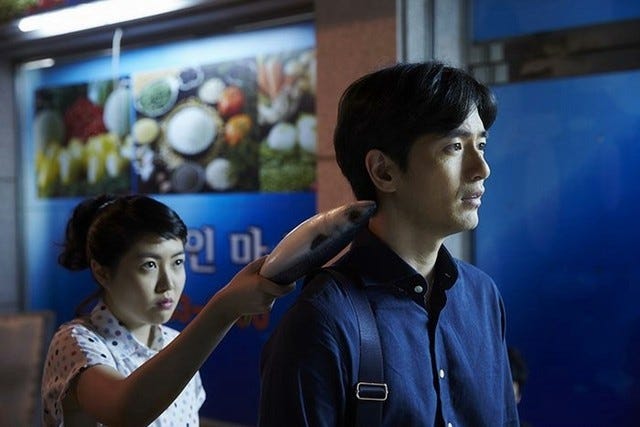
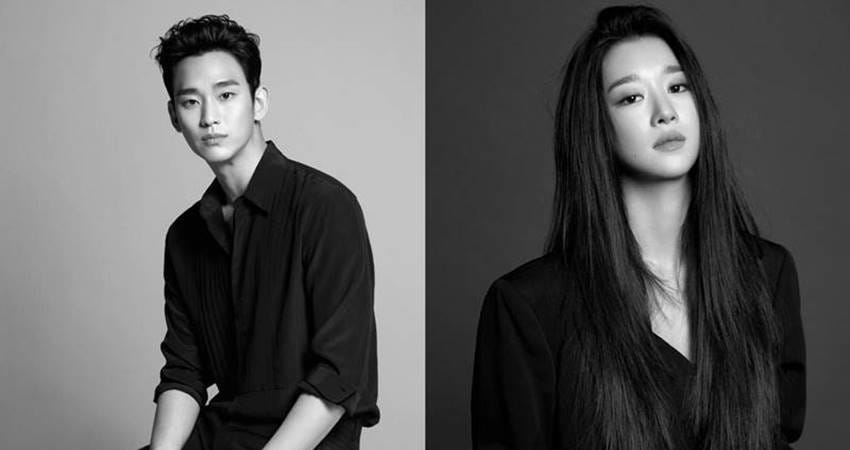
There is a limit to my courage so I'm so happy to read your reviews of both Squid Game and The Crucible! Miss Granny made me cry just reading your words and will definitely watch that one. Sunny was amazing, there is an intimacy to the childhood friend groups in Korea that makes my heart ache or maybe it's a wish enacted on screen, a romanticizing of an alternate life.
PS. Kim Soo Hyun = King of Cameos!
I d k, that's just what Dramacool labeled it, so that's what I put in my Google drive database of 268 watched kdramas of the last 7 years